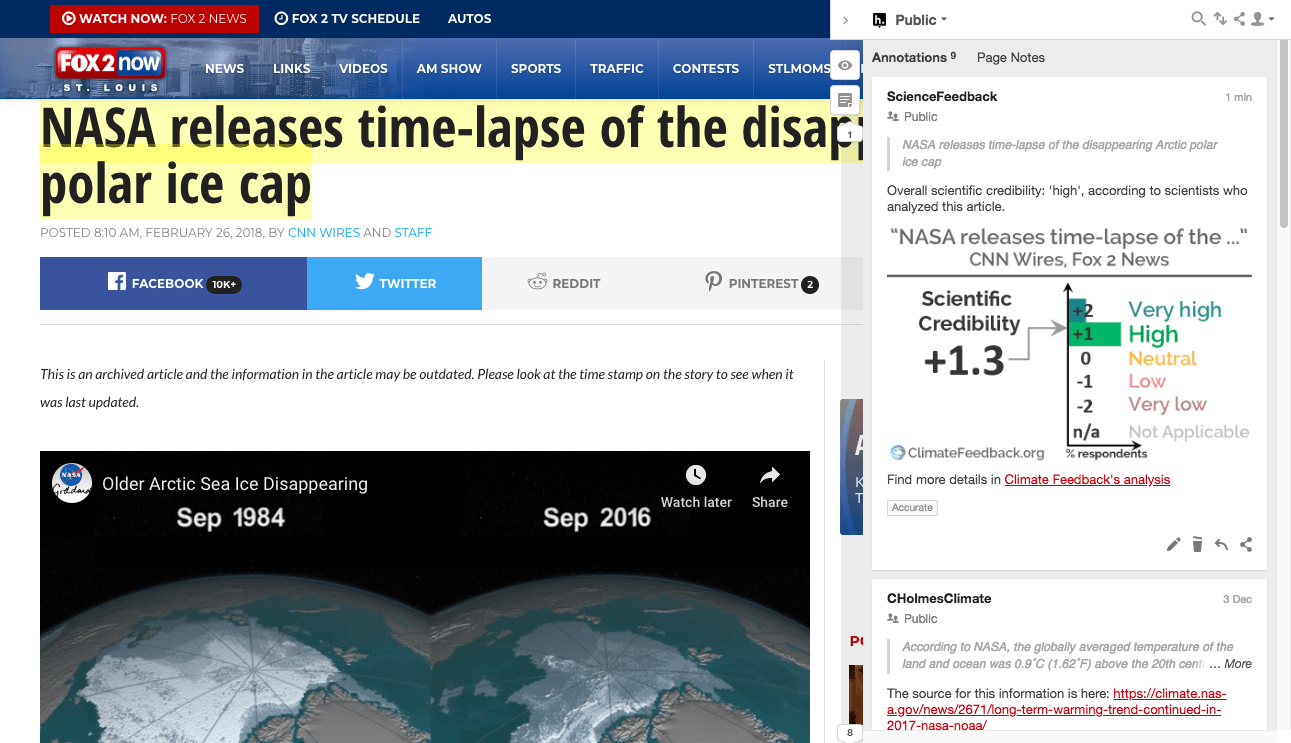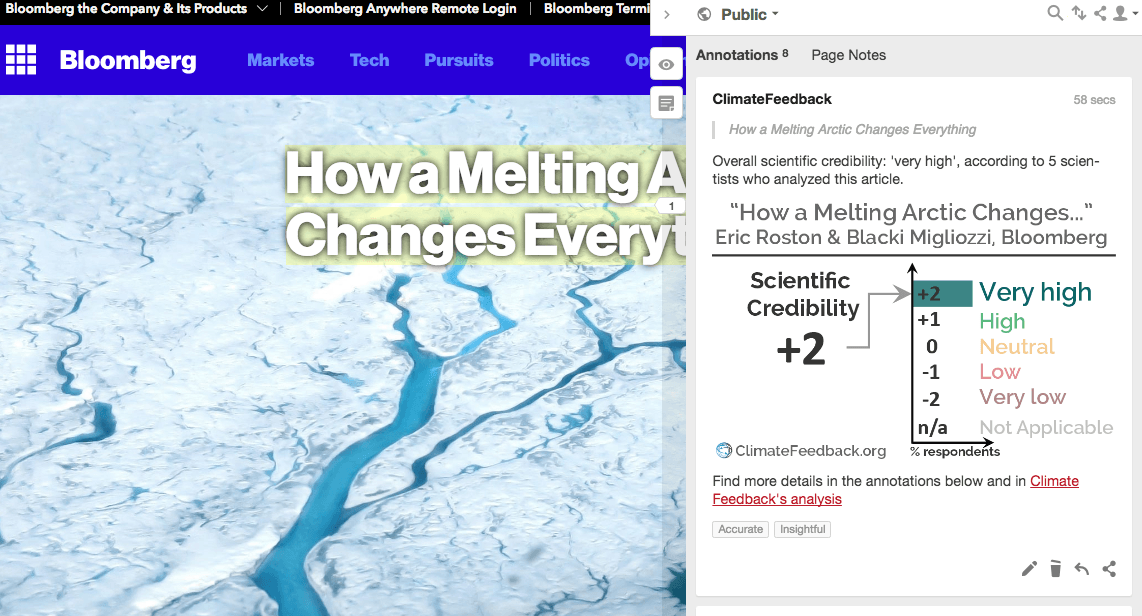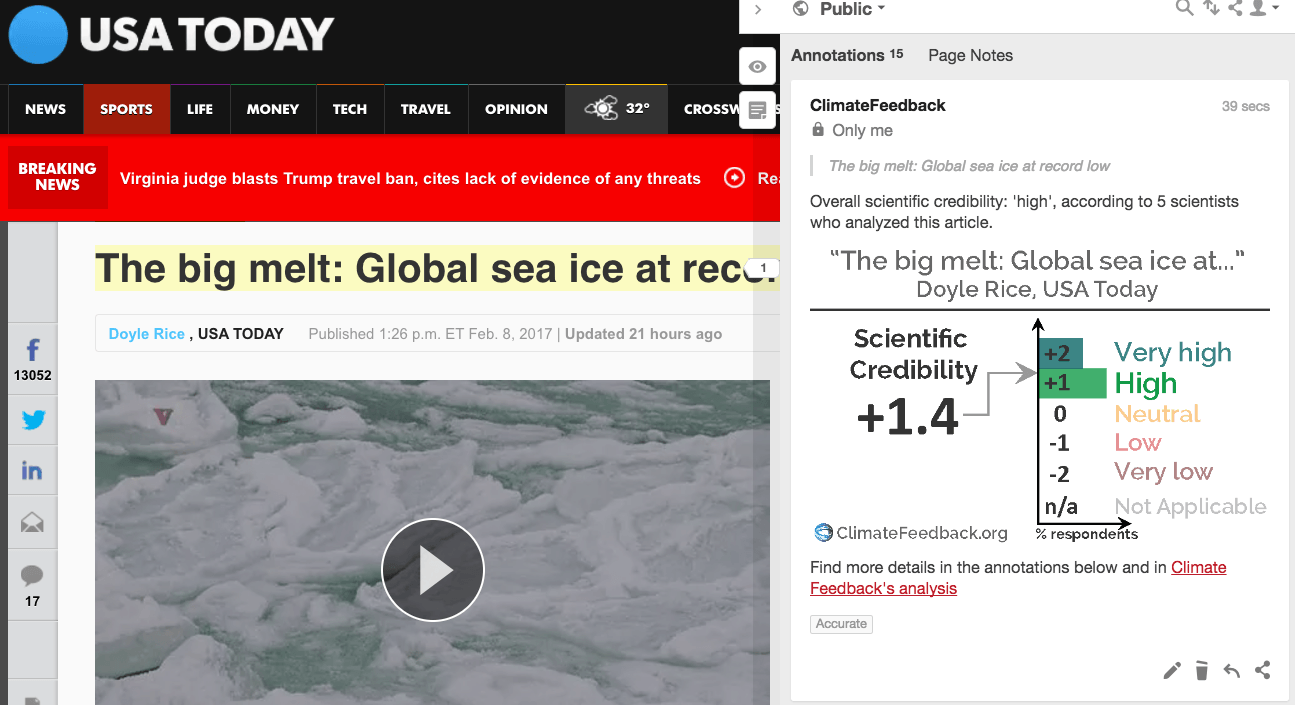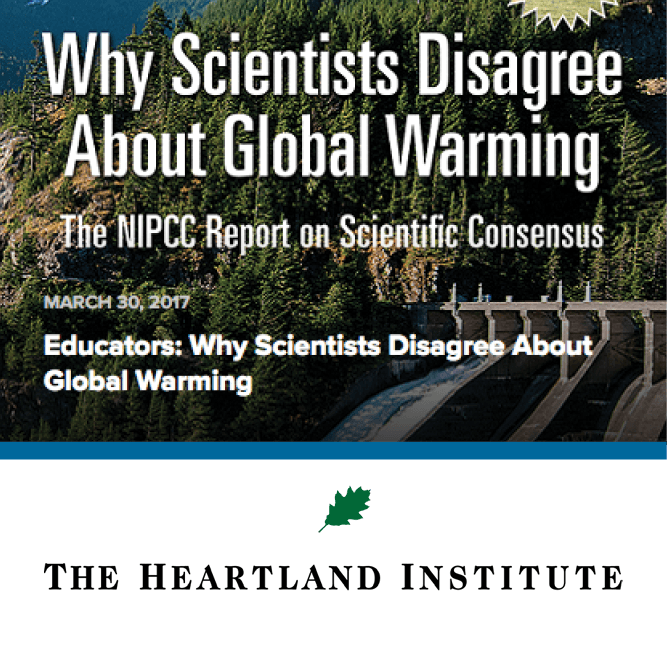.
François Massonnet
Postdoctoral Research Fellow, Université catholique de Louvain
Expertise: Arctic and Antarctic sea ice, Climate model evaluation
Details:
![]() Hypothesis handle: francois.massonnet
Hypothesis handle: francois.massonnet
Qualifying publication(s): see criteria
ARTICLES REVIEWED
Popular story on Fox2Now accurately describes 2017 global temperature, sea ice extent
in Fox2News, CNN, by Brandon Miller
— 04 Dec 2018
"The article is factually correct. The reality that Arctic sea ice is getting younger is not so well known from the public, so such an article is welcome.
The article’s title an..
Insightful Bloomberg coverage on the rapidly changing Arctic: sea ice melt and permafrost thawing
in Bloomberg, by Blacki Migliozzi & Eric Roston
— 21 Apr 2017
Declining Arctic sea ice cover and thawing permafrost are both complex feedbacks that amplify global warming: The loss of reflective sea ice means more sunlight absorbed by the dar...
Analysis of “The big melt: Global sea ice at record low”
in USA Today, by Doyle Rice
— 10 Feb 2017
The five scientists who reviewed the article concluded that it is accurate. It properly conveys the core facts about global sea ice extent and the attribution of continuing sea ice...
CLAIMS REVIEWED
President Trump’s claim of growing ice does not reflect reality
CLAIM
The ice caps were going to melt. They were going to be gone by now, but now they're setting records
SOURCE: Donald Trump, ITV
Published: 29 Jan 2018
VERDICT

Heartland Institute report incorrectly claims no evidence of human impacts in melting ice
CLAIM
Melting of Arctic sea ice and polar icecaps is not occurring at ‘unnatural’ rates and does not constitute evidence of a human impact on the climate.
SOURCE: Craig Idso, Robert Carter, S. Fred Singer, Heartland Institute
Published: 17 May 2017
VERDICT






